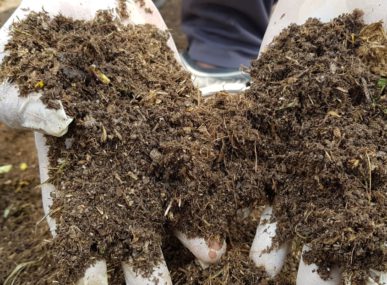UAD demonstrates that addressing pressing social challenges can also be profitable. Egypt faces an enormous problem with handling organic waste. A 2017 study found that every Egyptian generates an average 73 kilograms of food waste each year. This finding placed Egypt 16th out of 25 countries identified as especially profligate wasters of food. UAD is quite literally eating away at this hurdle, with thousands of earthworms diligently creating fertilizer from food scraps.
Commercial success has sprung from the encouraging market available for organic fertilizer. UAD already provides ongoing services for a sprawling, 7,000 acre peanut farm. According to Salem, this customer has reported healthy crops and improved production since switching to UAD’s organic products. Salem added that UAD remains aware of their clientele’s bottom line, rather than increased sustainability alone. “We do our best to attract clients by producing organic fertilizer at a very good price,” he said.



